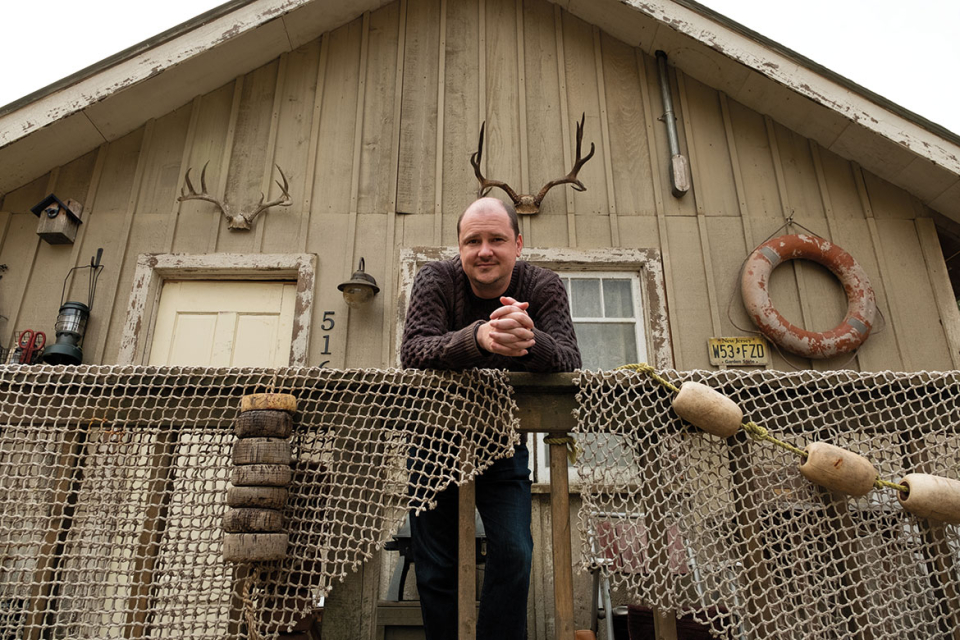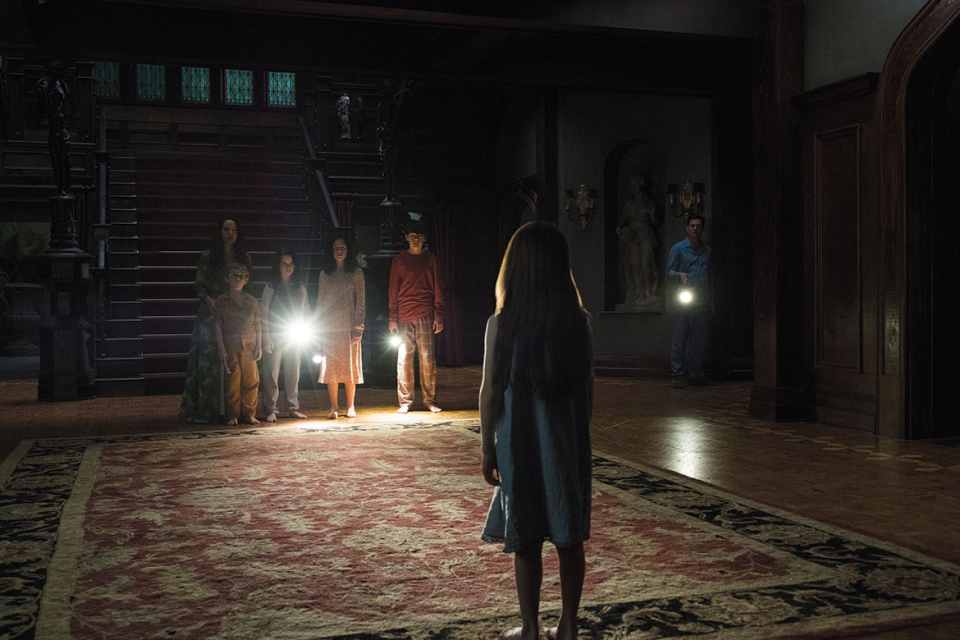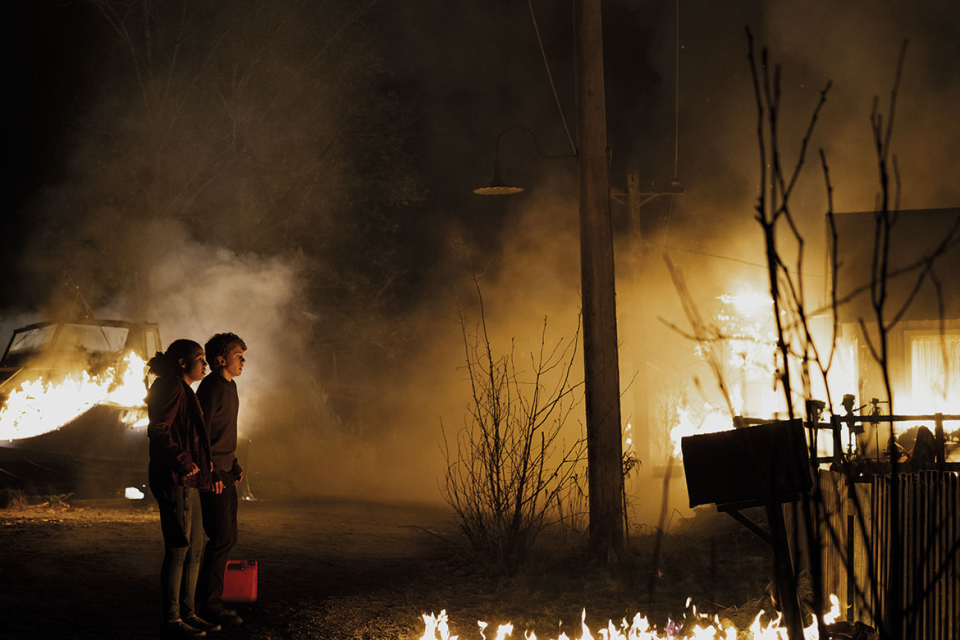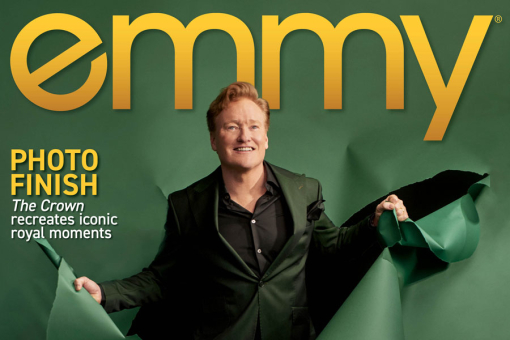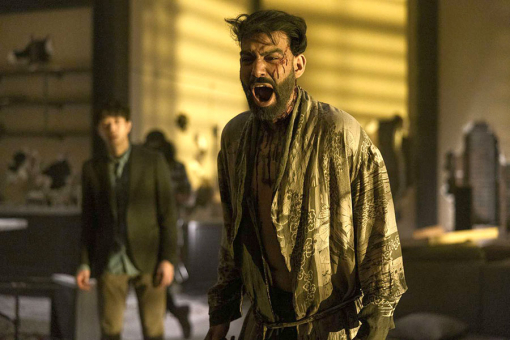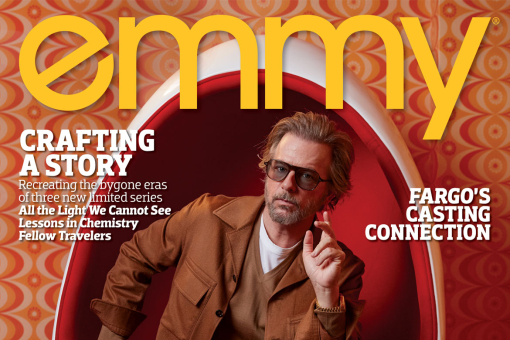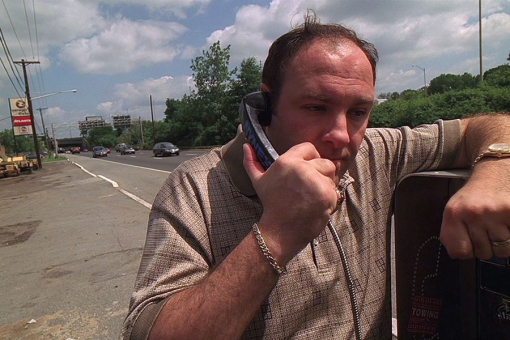When you are born in Salem, Massachusetts, and grow up to become a filmmaker, do you have any choice but to specialize in horror? Not if you're Mike Flanagan. The man behind such bloody Netflix thrillers as Midnight Mass and the hauntings of both Hill House and Bly Manor admits, "It was preordained." But 'twas not always thus.
"I was the opposite of a horror fan," he says. "I was the kid who hid behind the couch the first time a friend showed me the 'Thriller' video." He was in fifth grade when he read Stephen King's 1986 bestseller It, about a murderous drain-dwelling clown who preys on children.
"I was way too young for that book," Flanagan says. "But I was the perfect age to identify with the kids. They were like me — nerds and losers and outcasts. I would dare myself to make it to the end of a scary chapter. It was the first time I started to think of horror as an exercise for courage."
He's never stopped thinking that way. Today Flanagan is a writer-director-editor who's responsible for some of the best scares of recent times. Eight years after his theatrical film Oculus put him on the map in Hollywood — and three years after directing the high-profile sequel to The Shining called Doctor Sleep — he is finding mainstream success. Call him the other King of Horror.
TV critics have praised Flanagan as a "visionary," "one of the most thoughtful, empathetic and terrifying voices in horror" and "a reliable source for anyone who likes their horror to pack an emotional punch." But his favorite leading lady, Kate Siegel — who's also his real-life wife of six years — puts it best when she calls Flanagan the master of "sentimental horror." His films and series have heart, even if a stake does get driven through it in the end.
"Horror is the perfect Trojan horse for someone who wants to talk about big issues and wants to do it on a world stage," says Siegel, who met Flanagan while performing in the stage comedy The Heidi Chronicles and then was cast in Oculus. "Through horror, Mike can tackle the thoughts that keep him up at night. Isn't he a genius to put the familiar with the unbearable?"
That combination was on display in his most lauded undertaking, the seven-part Midnight Mass, which dropped on Netflix last fall. The thriller — about a charismatic priest (Hamish Linklater) who unleashes an evil force on the residents of a remote island — was a horror series to be sure. But it was as much about addiction, shame, love, guilt, mortality, family dynamics, religious zealotry, sexual politics and mob rule as it was about vampires.
"You have these characters doing these dastardly deeds, but they're coming from a pure, positive place in the center of their beings," Linklater says. His character, Father Paul, leads the town's flock horribly astray, but in his own mind, Linklater says, "He thinks he's doing the right thing." Linklater played the holy man as someone so seemingly good-hearted that he would easily attract followers. "You don't want someone who's twirling his mustache or who is a real psychopath," he explains.
Midnight Mass deals explicitly with sobriety. Its hero, Riley Flynn (Zach Gilford of Friday Night Lights), attends a twelve-step program at the church. For Flanagan, the topic was personal.
Riley, he says, is "my most thinly veiled avatar for myself and a lot of the things I wrestled with — not only faith or lack of faith, but also alcoholism." Flanagan, who was raised Catholic, struggled with a drinking problem before becoming sober four years ago. He says that Midnight Mass wouldn't have turned out nearly as well were he not in recovery. "Before I got sober, I don't think I understood a lot of the things I was working through."
Henry Thomas, who plays Riley's father, says, "It was obviously part of the therapy to write about sobriety and really delve into it." The actor, who also worked with Flanagan on 2016's Ouija: Origin of Evil, 2017's Gerald's Game and both Hill House and Bly Manor, says the filmmaker has grown both on- and offscreen.
"When I met Mike, he was a chain smoker, he was beating himself to death with exhaustion — writing, shooting, editing — and on top of that drinking heavily," Thomas remembers. "Getting some success and seeing a young family emerging in his life, it was important for him to think about his health and move forward. Like everything Mike does, he's really great at being a sober person."
These days Flanagan surrounds himself with people he trusts completely, often working with the same cast and crew on project after project. Trevor Macy, Flanagan's producing partner at Intrepid Pictures, says that hiring the same people is just a matter of practicality: "Having a shorthand with people is really helpful, because we can spend twenty minutes in a prop meeting, not two hours."
It also helps ease a self-described "control freak" like Flanagan.
"I had been told ahead of time that he had the whole thing planned out; he knew how it was going to go," Linklater says. "And when I stepped on the set, it felt like everything Mike had imagined in his head was the right move." Although he initially felt like "the new date brought home to a Thanksgiving family dinner," Linklater found himself a welcome addition. "I was given a part that let me spread my wings — my bat wings. I would work with Mike for the rest of my life."
If that speaks to Flanagan's character, it also speaks to his growing clout that he can tell stories in his own way. "There seems to be a systemic push to the idea that the audience is constantly distracted and will not spend the time to lay the foundation of a story," he says.
But that has never been Flanagan's style. He calls Jaws the most influential film in his life, and he's watched it more than 200 times. In that bloody, briny Spielberg classic, the shark isn't clearly seen for the first eighty-one minutes. Flanagan also moves at his own pace, confident that a hooked audience jumps higher.
While Midnight Mass has plenty of creepy moments — all those dead cats on the beach! — the first truly heart-stopping moment doesn't come until the end of episode four. By then, Macy says, "The scares really land, because you care about the characters."
"In a world where you have to have jump scares in the first thirty seconds, how brave is it to say, 'I want to take my time,'" Siegel says. "Days after watching it, you're still thinking about vampires and you're still thinking about sobriety."
Flanagan's passion for film was encouraged early on by his family, and later by his pals. During his college years, he studied electronic media and film and minored in theater at Maryland's Towson University. Like many there, he was an admirer of Baltimore filmmakers John Waters and Barry Levinson. "John Waters was a huge hero to me. One of my first jobs in the film industry was shooting behind the scenes at the Pecker premiere," Flanagan remembers.
Like Waters, Flanagan casts not only friends in his projects, but also actors he has long admired. Thomas, who starred in E.T. the Extra-Terrestrial forty years ago, was on Flanagan's wish list. "The first time we met Henry, both of us were like, 'Oh my god, you're Henry Thomas!'" Macy admits. But fandom quickly gave way to a professional relationship that has brought the actor back to the Flanagan fold time and again, including the upcoming series for Netflix, The Fall of the House of Usher.
That mashup of Edgar Allan Poe stories, which began filming this past winter, allowed Flanagan to cast another childhood idol: Mark Hamill. Of course, everyone was stoked to meet Luke Skywalker. "Mike and I met Mark together," Macy says, "and it's the only time we both asked for a selfie."
Hiring iconic actors is the fulfillment of a lifelong dream for Flanagan. "He's living out his childhood fantasies," Siegel says. "There is a part of Mike Flanagan who will always be an eight-year-old film fanatic. He's living his best life."
Meeting idols, though, is not always easy, particularly when that idol is Stephen King. "I met Steve exactly once," Flanagan recalls. "I still get weird when I call him Steve. When I did Doctor Sleep, I sat next to him during the first screening in an empty theater in his hometown in Maine. I spent all of it watching him, just trying to scrutinize every movement and every breath to find out how he was feeling. I kept thinking, 'If he feels about this movie the way he felt about The Shining, I'm going to be eviscerated by my childhood hero.' Thank heaven, he loved the movie."
Usher marks a departure, at least in tone. If Midnight Mass was about fundamental goodness and played like a choral work, Usher promises to be bad-to-the-bone rock 'n' roll. "Usher is chaotic evil — buckets of blood and everyone turning their volume controls up to eleven," Siegel says. "It's darker than a lot of things we've done," Macy adds. "It's more fun. It's more commercial."
Another upcoming project, The Midnight Club — based on the writings of Christopher Pike and expected later this year on Netflix — is Flanagan's first series geared toward younger viewers. It's also the first show this father of three has shared with his older son, Rigby, who's eleven (actress Courtney Bell is his mom). "He was a canary in the coal mine for Midnight Club and he loved it," Siegel says.
But Flanagan's two children with Siegel — son Cody and daughter Theodora — will have to wait to experience their parents' onscreen work. "They know that Mommy and Daddy play for a living," Siegel says slyly, "but they don't know we kill everyone we love."
As for working with her husband, Siegel says, "At home, it's a partnership. At work, he's my boss. I let him get away with stuff at work that I never would at home. One of the cornerstones of our relationship is that we respect and admire each other's talents. It bleeds into our marriage."
For his part, Flanagan calls his marriage "the collaboration of my life" and says he can't believe his luck. "Not only am I married to this incredible woman, but we're able to enjoy merging our home life and our work life. I can take my loftiest ambitions and hand them to her and know she can elevate them. We always think, 'Our children are going to watch this someday.'"
Even if they stay behind the couch.
This article originally appeared in emmy magazine issue #5, 2022, under the title, "After Midnight."

